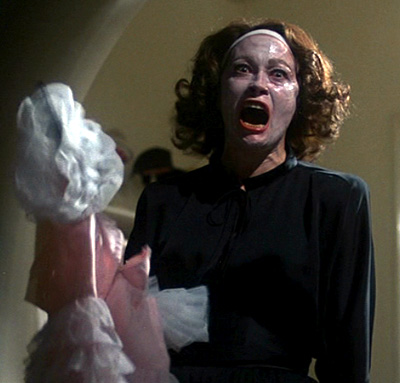Joan Crawford Says No Rhetorical Questions
All too often, when a writer wants to express some kind of doubt or curiosity or insecurity in their characters, they will invoke a plaintive rhetorical question like, “Ella loved her husband, didn’t she?” or “What was he thinking?” or “This wasn’t really her life, was it?” or “Did that really happen?” These interrogatory moments are a facile way of introducing tension, of letting the audience know an internal debate is taking place, of pandering in really annoying ways, of stating the blatantly obvious. Are rhetorical questions necessary though? I think not. They are lazy writing, using the questions to drive the narrative forward when that same forward motion could be achieved by just telling the damn story and showing that doubt or insecurity in other ways. I have been seeing a rash of rhetorical questions lately. I now often cringe. I am even more troubled when a story begins or ends with a rhetorical question. In these instances, I am left with the impression that the writer is lacking confidence or that the writer is unsure of how to begin or where to end their story. Every one has a different set of rules for writing but I have to insist that two of those unbreakable rules must be: 1) do not use rhetorical questions unless absolutely necessary and 2) never begin or end your story with a question. It’s your writing. You (should) know the answers. Am I the only one who is driven crazy by rhetorical questions?
Wait. See what I just did there?

